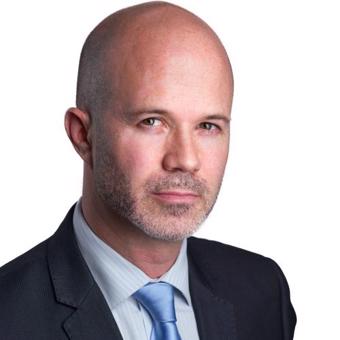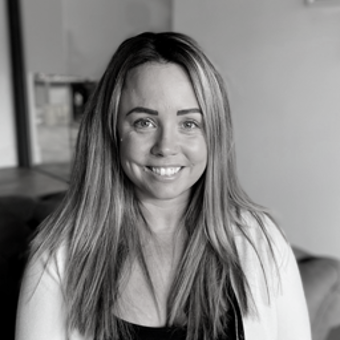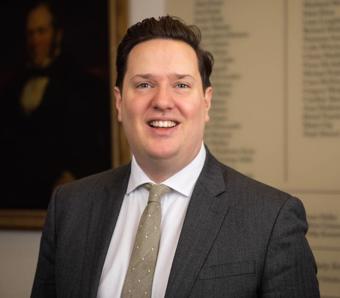Jeremy Scott heads a team that deals with corporate and criminal regulatory offending throughout Yorkshire and beyond. He shares his working schedule with The Brief.
I lead the Regulatory & Corporate Defence team at the full-service commercial and private client Yorkshire firm Lupton Fawcett LLP. Consisting of four fee earners, we are a team of regulatory & criminal defence lawyers who focus on what used be termed “white collar” offences, with a very strong emphasis on Fraud & Proceeds of Crime.
Our caseload includes corporate offending and fraud, regulatory offences – for example prosecutions brought by the Health & Safety Executive or Environment Agency (often allegations of illegal deposits of waste) and we field expertise in defending road traffic offences.
We also work on rape and serious sexual offences (known as ‘RASSO’), in particular university misconduct allegations.
The universities have now, in effect, built up their own internal court system. So, if an allegation is made of sexual offending, or of academic misconduct, it is dealt with internally by the university within its own procedures, as well as potentially being referred out to the police.
I very occasionally carry out consulting work for organisations to help them ensure regulatory compliance. However, we have found that, as the law in the areas we deal with has become increasingly complex, it has become important to focus on our core specialisms, which are dealing with and defending corporate clients and individuals facing interviews, investigations and prosecutions.
Our job is to get the best results for our clients when they are under investigation or are being prosecuted by developing a strategy to get the right result as quickly, painlessly and cost-effectively as we can - whilst at the same time ensuring that the working relationship between the client and the regulator is maintained and developed.
Client acquisition
Clients come to us from a variety of sources. In many cases it is word of mouth referrals.
For example, in one recent case I had previously done some fraud-related work for one of the partners at a major accountancy practice. That accountant was then approached by one of his clients, who was facing a similar issue, and he referred him on to me.
We also receive referrals from other departments within the firm. One example of this was a commercial client of the firm when an employee fell into an agricultural machine and was seriously injured.
The ambulance service and police arrived, and shortly after them the Health & Safety Executive. This was over a Bank Holiday weekend, so I received a call from the client and had to hightail it to their premises in Norfolk to assist them in dealing with it in such a way that, if possible, they would not get prosecuted.
We also do quite a bit of search engine optimisation (SEO) and get a lot of clients finding us via internet searches. They might, for example, Google “Leeds University misconduct panel” and hopefully we will come up prominently in the results because that’s one of the search terms we optimise for.
We also get work through being known in the region’s business community. We do a lot of networking, and I often attend evening business events.
First contact
With most client leads, as Head of Department I triage them and assign them among the team, based on people’s specialisations and availability.
In addition, the experienced specialist members of the team have developed their own networks and reputations so bring in their own work in their own niche areas.
We don’t turn much work down. The length of time cases take to get to Court means we can usually find capacity, even when a prospective client has a court hearing the following day and has left everything to the last minute.
Usually, the only barrier to instructing me or the team is affordability. We are not a Legal Aid firm, so clients need to be able to afford our fees – and in regulatory criminal cases defendants can’t recoup other than minimal costs, even if they are found not guilty.
So, during the first call with a client I will tell them what the likely costs will be, and if they say that it’s not affordable for them then we will try our best to make it affordable. However, sometimes that might not be possible, because we also run a business.
Morning routine
We have three offices, in York, Leeds, and Sheffield, and I tend to divide most of my time between York, where I live, and Leeds.
As Head of Department, I want to be available to support my team so I usually work from the office and might only work from home one day every couple of weeks, if I need to prepare for a big case without any distractions.
I am an early riser and am at my desk starting work at 7.30, after a couple of strong coffees. I usually spend that first hour of the morning planning what the day will look like and dealing with any overhanging paperwork and issues from the day before.
How the day shapes up can often depend on factors we can’t predict – we can never know when the phone will ring and what the issue will be. It also depends on whether I have a court hearing.
Hearings
I spend about 20 per cent of my time conducting advocacy at hearings – an average of one day a week. If I have a hearing that day then when I get into the office early in the morning, I will be finalising my preparation for that, having prepared for the hearing and filing/serving documents in the week or so beforehand.
I might also have a conference with counsel, and I’ll check all the papers to make sure that I have everything, and that the barrister(s) and client have everything that they need in front of them.
During the day I will also be requesting disclosure from the investigators or prosecution, considering their evidence, and whether they have sufficient evidence to prove their case.
I am an accredited Higher Court Advocate so, as well as working with barristers, I also represent clients myself in Court, when appropriate.
On other days, if I have a new case, I will spend time considering it and forming an opinion on the merits of the case, what the potential defences might be, and developing a strategy for working towards the best result for the client.
I also spend a large portion of my time preparing Briefs to Counsel, preparing instructions to experts, and preparing for advocacy in Court.
Our work is primarily client focussed, so at all stages I will be advising my client on strategy/next steps and taking their instructions so that they are an integral part of the decision-making process.
Management responsibilities
As Head of Department, I also have a management/supervision role within my team, and within the firm, so I have regular catchups with my team. I also have meetings with other Heads of Department, so we understand what we are all working towards and how we can help each other’s clients.
We have regular partners meetings where we discuss the strategic management of the firm and Business Development.
At lunchtime I will usually just grab a sandwich, or if I am in one of the offices I will often go out for lunch with a colleague, which provides a further opportunity to catch up informally.
I usually finish work at about 6.30, although this depends what I have on the next day, and what might be hanging over. It’s a pretty long day, and sometimes it’s much later than that if I’ve got final preparation for an upcoming hearing or interview with investigators.
As criminal regulatory lawyers we need to be available 24/7, to deal with enquiries from clients as they come in and respond to incidents as they unfold. However, the majority of new clients are really respectful and, if they do get in touch in the evening or over a weekend, will often send a text/email to introduce themselves, confirm what has happened, and ask what time I would be available for a call the following morning.
So, I do get to, if not switch off entirely, then at least relax, when I’m at home.
Visit
Connect with Jeremy Scott via LinkedIn









